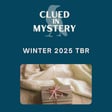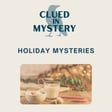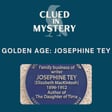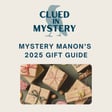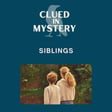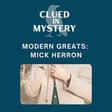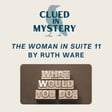
Interview with Megan Abbott
Award winning author Megan Abbott joins Brook and Sarah to discuss noir and hard-boiled mystery fiction, sibling relationships, and why mystery is important, as well as her recent release El Dorado Drive. Audio note: Megan lives in an urban neighborhood and listeners will hear the occasional train rumbling by.
Discussed and mentioned
El Dorado Drive (2025) Megan Abbott
Red Harvest (1929) Dashiell Hammett
Beware the Woman (2023) Megan Abbott
Give Me Your Hand (2018) Megan Abbott
You Will Know Me (2016) Megan Abbott
The Fever (2014) Megan Abbott
Dare Me (2012) Megan Abbott
The End of Everything (2011) Megan Abbott
The Turnout (2021) Megan Abbott
For more about Megan
Website: meganabbott.com
Instagram: https://www.instagram.com/melizaabbott/
X/Twitter: https://twitter.com/meganeabbott
For more information
Instagram: @cluedinmystery
Contact us: hello@cluedinmystery.com
Music: Signs To Nowhere by Shane Ivers – www.silvermansound.com
Sign up for our newsletter: https://cluedinmystery.com/clued-in-chronicle/
Join the Clued in Cartel for as little as $12 USD/year: https://cluedinmystery.com/clued-in-cartel/
For a full episode transcript, visit https://cluedinmystery.com/bonus-interview-with-megan-abbott/
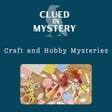
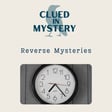
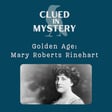
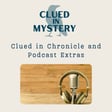
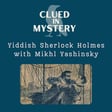
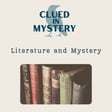
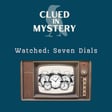
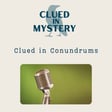
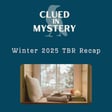
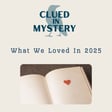
![[Re-release] Anthony Berkeley image](https://media.zencastr.com/cdn-cgi/image/width=112,quality=85/image-files/61e1c276e3ec42007857cff9/e7c778ac-a2ba-4809-9a5c-7cd39d167834.jpg)
![[Bonus] Wake Up Dead Man image](https://media.zencastr.com/cdn-cgi/image/width=112,quality=85/image-files/61e1c276e3ec42007857cff9/e276ac32-e664-464f-956c-7699bdb60aa5.jpg)
